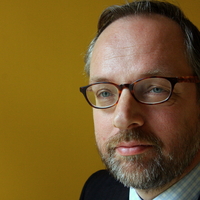Books by Emily Hughes

This book reconstructs Heidegger’s philosophy of time by reading his work with and against a seri... more This book reconstructs Heidegger’s philosophy of time by reading his work with and against a series of key interlocutors that he nominates as being central to his own critical history of time. In doing so, it explains what makes time of such significance for Heidegger and argues that Heidegger can contribute to contemporary debates in the philosophy of time.
Time is a central concern for Heidegger, yet his thinking on the subject is fragmented, making it difficult to grasp its depth, complexity, and promise. Heidegger traces out a history that focuses on the conceptualisations of time put forward by Aristotle, Plotinus, Augustine, Kant, Hegel, Bergson, and Husserl—an “alternative history of time” that challenges how time has been defined and studied within both philosophy and the sciences. This book explores what happens when we take seriously Heidegger’s claim that these seven figures are essential to any understanding of time, setting out what this can tell us about existence, possibility, and philosophy as a historical discipline.
Heidegger’s Alternative History of Time will appeal to scholars and advanced students working on Heidegger, phenomenology, the philosophy of time, and the history of philosophy.
Book Chapters by Emily Hughes

In The Phenomenology of Emotion Regulation: Feeling and Agency Edited by Fuchs and Schmidt Oxford University Press, 2025
This chapter presents the argument that temporal disturbances in profound grief can be regulated ... more This chapter presents the argument that temporal disturbances in profound grief can be regulated through narrative. Although it is well-documented in the phenomenological literature that disruptions to lived time involve significant suffering, there has been little research focused on how such states may be regulated. To varying degrees, grief can affect both the flow of lived time and the structure of past, present and future, such that the time of the mourner is splintered apart from the time of the world. Given that narrative is the primary means through which we represent temporal experiences, we propose that this process of 'desynchronisation' is accompanied by an almost complete loss of narrativity in experience. After setting out a scalar conception of narrativity as a variable quality of experience that comes in degrees, we propose that temporal disturbances in grief can be regulated through intentional acts of narrativizing experience which appropriate world time in order to restore both the flow and structure of temporal experience.
Routledge Handbook of Contemporary Existentialism, 2024
Affectivity is an important theme in the work of Søren Kierkegaard and his writings on intense an... more Affectivity is an important theme in the work of Søren Kierkegaard and his writings on intense and distressing attunements such as anxiety, despair, irony and melancholy have had an important impact upon existential philosophy, psychology, and psychiatry. What is less clear is the extent to which Kierkegaard's existential phenomenology of affectivity has any relevance to the contemporary philosophy of psychiatry and psychology, in particular the ongoing attempt to understand the relationship between anxiety and depressive disorders.
Journal Articles by Emily Hughes

Philosophical Psychology, 2024
Survivors of trauma commonly report feeling as though
a part of themselves has died. This article... more Survivors of trauma commonly report feeling as though
a part of themselves has died. This article provides
a theoretical interpretation of this phenomenon, drawing
on Waldenfels' notion of the split self. We argue that trauma
gives rise to an explicit tension between the lived and corporeal
body which is so profoundly distressing that it can be
experienced by survivors as the death of part of oneself. We
explore the ways in which this is manifest in the posttraumatic
phenomena of dissociation; indescribability; and the
fragmentation and repetition of time. Acknowledging that
the traumatic loss of part of oneself involves significant grief,
we then consider whether the bereavement literature might
be helpfully applied. We focus specifically upon the continuing
bonds model, which emphasizes an ongoing and meaningful
relationship with the deceased through an active
process of memorializing. In considering how this might be
appropriated to the death of the self in trauma, we suggest
that the development of an intrapersonal relationship
between parts lost and living might, over time, offer
a unique way in which to adapt to loss and approach the
future.

Topoi, 2023
When a loved one dies, it is common for the bereaved to feel profoundly lonely, disconnected from... more When a loved one dies, it is common for the bereaved to feel profoundly lonely, disconnected from the world with the sense that they no longer belong. In philosophy, this experience of 'loss and loneliness' has been interpreted according to both a loss of possibilities and a loss of the past. But it is unclear how these interpretations apply to the distinctive way in which loss and loneliness manifest in old age. Drawing on the phenomenological analyses of old age given by de Beauvoir and Améry, I consider how the diminishment of the capacity for projection and recollection complicate recent interpretations of loss and loneliness, whilst nevertheless reinforcing the conclusion that in old age subjectivity is necessarily impoverished. Developing a critical stance on de Beauvoir and Améry's underlying conception of subjectivity, I turn to Levinas in considering whether or not there is a way to reimagine subjectivity such that the estrangement and alienation of older adults might be ameliorated rather than exacerbated. Grounded in the passive body-in-itself rather than the self-transcending capacity of the body-for-itself, I suggest it becomes possible to reconceptualise the experience of loss and loneliness in old age; both in terms of what is lost and what needs to be restored if older adults are to be helped to find themselves at home in the world in the midst of, and indeed because of, manifold loss.

Philosophical Explorations, 2022
Disturbances to one's sense of self, the feeling that one has "lost a part of oneself" or that on... more Disturbances to one's sense of self, the feeling that one has "lost a part of oneself" or that one "no longer feels like oneself," are frequently recounted throughout the bereavement literature. Engaging Allan Køster's important contribution to this issue, this article reinforces his suggestion that, by rupturing the existential texture of self-familiarity, bereavement can result in experiences of estrangement that can be meaningfully understood according to the concept of self-alienation. Nevertheless, I suggest that whilst Køster's relational interpretation of alienation as the withdrawal of heteronomy can be applied to the experience of worldcollapse in bereavement, what sets bereavement apart from other limit situations is the fact that it involves an intersubjective relation between the living and the dead. In contrast to Køster, therefore, I suggest that the experience of self-alienation that is distinctive to bereavement results from the fact that the bereaved is exposed to, and co-opted by, the absolute alterity of death itself.

Psychopathology, 2022
Introduction: The experience of disconnection is common in first-person accounts of grief. One wa... more Introduction: The experience of disconnection is common in first-person accounts of grief. One way in which this feeling of estrangement can manifest is through the splintering apart of the time of the mourner and the time of the world. Supplementing and extending Thomas Fuchs’ influential idea of temporal desynchronization, my aim in this article is to give an account of the heterogenous ways in which grief can disturb time.
Method: I organise these manifold experiences of temporal disruption according to a method of ‘depth analysis’: a phenomenological interpretation of temporal desynchronization that tracks the increasing disconnect between the mourner and the world as it manifests in time. In so doing, I draw on a wide-range of descriptive first-person responses to the question ‘Has your experience of time changed in any way?,’ included as part of an online questionnaire on the emotional experience of grief conducted recently with colleagues at the University of York. I then stratify these according to a mild, moderate and profound level of disruption.
Results: Before setting out the results of this analysis, I give a background account of Fuchs’ interpretation of temporal desynchronization in phenomenological psychopathology more generally and in grief specifically. In my results I then supplement and extend his interpretation by setting out my phenomenological depth analysis of the increasing disconnect between the time of the mourner and the time of the world, as demonstrated by the questionnaire data. As I argue, such a fine-grained account is an important step in understanding the way time can shape the meaning and significance of different grief experiences. Following this, in my discussion I demonstrate how a depth approach might be helpful in differentiating between temporal disturbances in a range of affective disorders and give an illustrative comparison of grief and depression.
Conclusion: In conclusion I reflect briefly on what grief might reveal about the depth and complexity of temporal experience itself. In so doing, I consider how the radical disruptions to time in grief might transform the mourner’s experience of time irreversibly, but in a way that enables a renewed connection to both their deceased loved one and the world from which they have become estranged.
Philosophy, Psychiatry & Psychology, 2021
Philosophy, Psychiatry, & Psychology, 2020
In 'Melancholia, temporal disruption, and the torment of being both unable to live and unable to ... more In 'Melancholia, temporal disruption, and the torment of being both unable to live and unable to die' (Hughes 2020), I discuss the way in which the temporal desynchronization of melancholia can disrupt the melancholic's relation to their own death and, on a Heideggerian interpretation, the meaning and significance of their life. In their thoughtful commentaries, Kevin Aho and Gareth Owen draw out some important points for further elaboration and clarification, the most pressing of which invoke Heidegger's interpretation of time and the radical temporalities of fundamental attunements. As Aho anticipates, this is the conception of time that underpins my interpretation of melancholia and, because this is important to understanding the conception of death and demise I put forward in my article, it is this that I

Philosophy, Psychiatry, & Psychology, 2020
Melancholia is an attunement of despair and despondency that can involve radical disruptions to t... more Melancholia is an attunement of despair and despondency that can involve radical disruptions to temporal experience. In this article I extrapolate from the existing analyses of melancholic time in order to examine some of the important existential implications of these temporal disruptions. In particular, I focus on the way in which the desynchronization of melancholic time can complicate the melancholic’s relation to death and, consequently, to the meaning and significance of their life. Drawing on Heidegger’s distinction between death and demise, I argue that melancholic time leaves the melancholic in an impossible state of existing, where they are both unable to live and unable to die. Turning to the role of the physician, I consider the significant role that clinical interventions might have in resynchronizing the melancholic with time and examine these ideas further through a case study on physician assisted suicide. In so doing, I demonstrate that the desynchronization of melancholic time should indeed be understood as a matter of life and death.
Book Reviews by Emily Hughes

Nietzsche-Studien, 2023
In this review essay, I take up a critical analysis of three recently published monographs in Hei... more In this review essay, I take up a critical analysis of three recently published monographs in Heidegger-Nietzsche scholarship. Whilst their projects are diverse, I suggest that Winkler, Parra and Armitage are each fundamentally concerned with the critique of the Cartesian subject in Heidegger's interpretation of Nietzsche and attempt to varying extents to ground this problematization of subjectivity in the phenomenon of time. Nevertheless, whilst each emphasises the importance of time in understanding both Heidegger's and Nietzsche's critique of the subject, it is surprising that they either underplay or misappropriate the significance of eternal recurrence, the temporal phenomenon which Heidegger defines as Nietzsche's "thought of thoughts." After engaging each account, my aim is to then consider how they might be critically re-framed in light of Heidegger's interpretation of eternal recurrence which, I suggest, is fundamental to understanding Heidegger's engagement with Nietzsche, as well as his own philosophical project more broadly.
Drafts by Emily Hughes

Throughout his work, Heidegger makes the repeated attempt to retrieve the Greek experience of Bei... more Throughout his work, Heidegger makes the repeated attempt to retrieve the Greek experience of Being as φύσις. This is necessary because Western metaphysics has ‘restricted’ Being as φύσις to the idea of beings as a whole as ‘nature.’ Understanding the distinction between φύσις and nature is fundamental to understanding Heidegger’s interpretation of the pre-Socratics, yet it remains problematically opaque in his work. In this article, I examine the way in which Heidegger’s account of affectedness affords this distinction some clarity. Specifically, I argue that whilst the ‘fundamental’ attunement of wonder disposes one toward Being as φύσις, the ‘fallen’ attunements of amazement, marveling, and curiosity dispose one toward beings as a whole, as nature. By grounding the restriction of φύσις to nature, in the restriction of wonder to amazement, marveling, and curiosity, this article brings a unique vantage point from which to understand this important yet difficult distinction in Heidegger’s work.
In existential phenomenological theories of attunement the ontology of anxiety has been extensive... more In existential phenomenological theories of attunement the ontology of anxiety has been extensively theorized, whilst the ontology of the related mood despair has either been covered over or largely disregarded. This paper ‘raises anew’ the existential significance of despair by demonstrating how its ontological structure is intricately related to that of anxiety. Both anxiety and despair confront one with the dizzying abyss of uncanniness.
However whilst anxiety discloses possibility, despair defines itself in its
disclosure of impossibility. It is in uncovering the unique ontological structure of despair that the existential significance of this impossibility is ‘lit up’ most profoundly.
Teaching Documents by Emily Hughes
This is the course outline for an intensive short course taught by Dr Emily Hughes and I for the ... more This is the course outline for an intensive short course taught by Dr Emily Hughes and I for the Melbourne School of Continental Philosophy.
The MSCP hosts many great courses, with full online enrolments available. Check out https://mscp.org.au/courses for details of upcoming offerings.
Theses by Emily Hughes
Book by Emily Hughes

Out now with Routledge
This book reconstructs Heidegger’s philosophy of time by reading his w... more Out now with Routledge
This book reconstructs Heidegger’s philosophy of time by reading his work with and against a series of key interlocutors that he nominates as being central to his own critical history of time. In doing so, it explains what makes time of such significance for Heidegger and argues that Heidegger can contribute to contemporary debates inthe philosophy of time.
Time is a central concern for Heidegger, yet his thinking on the subject is fragmented, making it difficult to grasp its depth, complexity, and promise. Heidegger traces out a history that focuses on the conceptualisations of time put forward by Aristotle, Plotinus, Augustine, Kant, Hegel, Bergson, and Husserl—an “alternative history of time” that challenges how time has been defined and studied within both philosophy and the sciences.
This book explores what happens when we take seriously Heidegger’s claim that these seven figures are essential to any understanding of time, setting out what this can tell us about existence, possibility, and philosophy as a historical discipline.
Heidegger’s Alternative History of Time will appeal to scholars and advanced students working on Heidegger, phenomenology, the philosophy of time, and the history of philosophy.
https://www.routledge.com/Heideggers-Alternative-History-of-Time/Hughes-Stendera/p/book/9781032433509
Papers by Emily Hughes

Loss, Loneliness, and the Question of Subjectivity in Old Age
Topoi-an International Review of Philosophy, Apr 18, 2023
When a loved one dies, it is common for the bereaved to feel profoundly lonely, disconnected from... more When a loved one dies, it is common for the bereaved to feel profoundly lonely, disconnected from the world with the sense that they no longer belong. In philosophy, this experience of ‘loss and loneliness’ has been interpreted according to both a loss of possibilities and a loss of the past. But it is unclear how these interpretations apply to the distinctive way in which loss and loneliness manifest in old age. Drawing on the phenomenological analyses of old age given by de Beauvoir and Améry, I consider how the diminishment of the capacity for projection and recollection complicate recent interpretations of loss and loneliness, whilst nevertheless reinforcing the conclusion that in old age subjectivity is necessarily impoverished. Developing a critical stance on de Beauvoir and Améry’s underlying conception of subjectivity, I turn to Levinas in considering whether or not there is a way to reimagine subjectivity such that the estrangement and alienation of older adults might be ameliorated rather than exacerbated. Grounded in the passive body-in-itself rather than the self-transcending capacity of the body-for-itself, I suggest it becomes possible to reconceptualise the experience of loss and loneliness in old age; both in terms of what is lost and what needs to be restored if older adults are to be helped to find themselves at home in the world in the midst of, and indeed because of, manifold loss.











Uploads
Books by Emily Hughes
Time is a central concern for Heidegger, yet his thinking on the subject is fragmented, making it difficult to grasp its depth, complexity, and promise. Heidegger traces out a history that focuses on the conceptualisations of time put forward by Aristotle, Plotinus, Augustine, Kant, Hegel, Bergson, and Husserl—an “alternative history of time” that challenges how time has been defined and studied within both philosophy and the sciences. This book explores what happens when we take seriously Heidegger’s claim that these seven figures are essential to any understanding of time, setting out what this can tell us about existence, possibility, and philosophy as a historical discipline.
Heidegger’s Alternative History of Time will appeal to scholars and advanced students working on Heidegger, phenomenology, the philosophy of time, and the history of philosophy.
Book Chapters by Emily Hughes
Journal Articles by Emily Hughes
a part of themselves has died. This article provides
a theoretical interpretation of this phenomenon, drawing
on Waldenfels' notion of the split self. We argue that trauma
gives rise to an explicit tension between the lived and corporeal
body which is so profoundly distressing that it can be
experienced by survivors as the death of part of oneself. We
explore the ways in which this is manifest in the posttraumatic
phenomena of dissociation; indescribability; and the
fragmentation and repetition of time. Acknowledging that
the traumatic loss of part of oneself involves significant grief,
we then consider whether the bereavement literature might
be helpfully applied. We focus specifically upon the continuing
bonds model, which emphasizes an ongoing and meaningful
relationship with the deceased through an active
process of memorializing. In considering how this might be
appropriated to the death of the self in trauma, we suggest
that the development of an intrapersonal relationship
between parts lost and living might, over time, offer
a unique way in which to adapt to loss and approach the
future.
Method: I organise these manifold experiences of temporal disruption according to a method of ‘depth analysis’: a phenomenological interpretation of temporal desynchronization that tracks the increasing disconnect between the mourner and the world as it manifests in time. In so doing, I draw on a wide-range of descriptive first-person responses to the question ‘Has your experience of time changed in any way?,’ included as part of an online questionnaire on the emotional experience of grief conducted recently with colleagues at the University of York. I then stratify these according to a mild, moderate and profound level of disruption.
Results: Before setting out the results of this analysis, I give a background account of Fuchs’ interpretation of temporal desynchronization in phenomenological psychopathology more generally and in grief specifically. In my results I then supplement and extend his interpretation by setting out my phenomenological depth analysis of the increasing disconnect between the time of the mourner and the time of the world, as demonstrated by the questionnaire data. As I argue, such a fine-grained account is an important step in understanding the way time can shape the meaning and significance of different grief experiences. Following this, in my discussion I demonstrate how a depth approach might be helpful in differentiating between temporal disturbances in a range of affective disorders and give an illustrative comparison of grief and depression.
Conclusion: In conclusion I reflect briefly on what grief might reveal about the depth and complexity of temporal experience itself. In so doing, I consider how the radical disruptions to time in grief might transform the mourner’s experience of time irreversibly, but in a way that enables a renewed connection to both their deceased loved one and the world from which they have become estranged.
Book Reviews by Emily Hughes
Drafts by Emily Hughes
However whilst anxiety discloses possibility, despair defines itself in its
disclosure of impossibility. It is in uncovering the unique ontological structure of despair that the existential significance of this impossibility is ‘lit up’ most profoundly.
Teaching Documents by Emily Hughes
The MSCP hosts many great courses, with full online enrolments available. Check out https://mscp.org.au/courses for details of upcoming offerings.
Theses by Emily Hughes
Book by Emily Hughes
This book reconstructs Heidegger’s philosophy of time by reading his work with and against a series of key interlocutors that he nominates as being central to his own critical history of time. In doing so, it explains what makes time of such significance for Heidegger and argues that Heidegger can contribute to contemporary debates inthe philosophy of time.
Time is a central concern for Heidegger, yet his thinking on the subject is fragmented, making it difficult to grasp its depth, complexity, and promise. Heidegger traces out a history that focuses on the conceptualisations of time put forward by Aristotle, Plotinus, Augustine, Kant, Hegel, Bergson, and Husserl—an “alternative history of time” that challenges how time has been defined and studied within both philosophy and the sciences.
This book explores what happens when we take seriously Heidegger’s claim that these seven figures are essential to any understanding of time, setting out what this can tell us about existence, possibility, and philosophy as a historical discipline.
Heidegger’s Alternative History of Time will appeal to scholars and advanced students working on Heidegger, phenomenology, the philosophy of time, and the history of philosophy.
https://www.routledge.com/Heideggers-Alternative-History-of-Time/Hughes-Stendera/p/book/9781032433509
Papers by Emily Hughes
Time is a central concern for Heidegger, yet his thinking on the subject is fragmented, making it difficult to grasp its depth, complexity, and promise. Heidegger traces out a history that focuses on the conceptualisations of time put forward by Aristotle, Plotinus, Augustine, Kant, Hegel, Bergson, and Husserl—an “alternative history of time” that challenges how time has been defined and studied within both philosophy and the sciences. This book explores what happens when we take seriously Heidegger’s claim that these seven figures are essential to any understanding of time, setting out what this can tell us about existence, possibility, and philosophy as a historical discipline.
Heidegger’s Alternative History of Time will appeal to scholars and advanced students working on Heidegger, phenomenology, the philosophy of time, and the history of philosophy.
a part of themselves has died. This article provides
a theoretical interpretation of this phenomenon, drawing
on Waldenfels' notion of the split self. We argue that trauma
gives rise to an explicit tension between the lived and corporeal
body which is so profoundly distressing that it can be
experienced by survivors as the death of part of oneself. We
explore the ways in which this is manifest in the posttraumatic
phenomena of dissociation; indescribability; and the
fragmentation and repetition of time. Acknowledging that
the traumatic loss of part of oneself involves significant grief,
we then consider whether the bereavement literature might
be helpfully applied. We focus specifically upon the continuing
bonds model, which emphasizes an ongoing and meaningful
relationship with the deceased through an active
process of memorializing. In considering how this might be
appropriated to the death of the self in trauma, we suggest
that the development of an intrapersonal relationship
between parts lost and living might, over time, offer
a unique way in which to adapt to loss and approach the
future.
Method: I organise these manifold experiences of temporal disruption according to a method of ‘depth analysis’: a phenomenological interpretation of temporal desynchronization that tracks the increasing disconnect between the mourner and the world as it manifests in time. In so doing, I draw on a wide-range of descriptive first-person responses to the question ‘Has your experience of time changed in any way?,’ included as part of an online questionnaire on the emotional experience of grief conducted recently with colleagues at the University of York. I then stratify these according to a mild, moderate and profound level of disruption.
Results: Before setting out the results of this analysis, I give a background account of Fuchs’ interpretation of temporal desynchronization in phenomenological psychopathology more generally and in grief specifically. In my results I then supplement and extend his interpretation by setting out my phenomenological depth analysis of the increasing disconnect between the time of the mourner and the time of the world, as demonstrated by the questionnaire data. As I argue, such a fine-grained account is an important step in understanding the way time can shape the meaning and significance of different grief experiences. Following this, in my discussion I demonstrate how a depth approach might be helpful in differentiating between temporal disturbances in a range of affective disorders and give an illustrative comparison of grief and depression.
Conclusion: In conclusion I reflect briefly on what grief might reveal about the depth and complexity of temporal experience itself. In so doing, I consider how the radical disruptions to time in grief might transform the mourner’s experience of time irreversibly, but in a way that enables a renewed connection to both their deceased loved one and the world from which they have become estranged.
However whilst anxiety discloses possibility, despair defines itself in its
disclosure of impossibility. It is in uncovering the unique ontological structure of despair that the existential significance of this impossibility is ‘lit up’ most profoundly.
The MSCP hosts many great courses, with full online enrolments available. Check out https://mscp.org.au/courses for details of upcoming offerings.
This book reconstructs Heidegger’s philosophy of time by reading his work with and against a series of key interlocutors that he nominates as being central to his own critical history of time. In doing so, it explains what makes time of such significance for Heidegger and argues that Heidegger can contribute to contemporary debates inthe philosophy of time.
Time is a central concern for Heidegger, yet his thinking on the subject is fragmented, making it difficult to grasp its depth, complexity, and promise. Heidegger traces out a history that focuses on the conceptualisations of time put forward by Aristotle, Plotinus, Augustine, Kant, Hegel, Bergson, and Husserl—an “alternative history of time” that challenges how time has been defined and studied within both philosophy and the sciences.
This book explores what happens when we take seriously Heidegger’s claim that these seven figures are essential to any understanding of time, setting out what this can tell us about existence, possibility, and philosophy as a historical discipline.
Heidegger’s Alternative History of Time will appeal to scholars and advanced students working on Heidegger, phenomenology, the philosophy of time, and the history of philosophy.
https://www.routledge.com/Heideggers-Alternative-History-of-Time/Hughes-Stendera/p/book/9781032433509